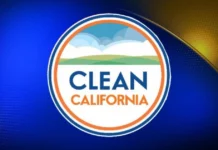Vidya Sethuraman
India Post News Service
Immigrants, who make up a significant portion of the nation’s essential workers, have nonetheless been targeted during the pandemic. The EMS briefing on August 7 explored the huge number of changes to immigration policy in recent months, with deep dives into DACA, Temporary Protected Status, and business immigration.
Sarah Pierce, policy analyst at the Migration Policy Institute dived into a new report released by the organization July 31, detailing 400 changes in immigration policy during the Trump administration. Pierce focused on changes occurring amid the pandemic.
She said the CDC order and the two proclamations, which were passed in April and June, were the most imperatives ones. April’s proclamation suspended entry into the U.S. for immigrants who were outside the U.S. or did not have a valid visa as of the proclamation’s effective date of April 24. A similar proclamation was issued June 22 that barred entry into the U.S. of foreign nationals who did not have a valid visa in certain specific guest worker categories like the H-1B and L-1.
Sarah said the possibility of a new administration could still fall short in reversing these policies without effective resources or the political will to do so. The president has been successful certainly in sealing off the southern border from arrivals,” Pierce said. The report found the administration has successfully limited U.S. immigration through: travel bans; reduced visa processing; enhanced border security; interior enforcement; tougher immigration courts rules and regulations; and repeated efforts to stop programs like Deferred Action for Childhood Arrivals.
Kalpana Peddibhotla, Immigration attorney, partner at Mathews Peddibhotla Law Group spoke on recent changes in business immigration policy, including bans on new H-1B, and L-1 workers entering the U.S., and a new executive order announced by the Administration Aug.
She gave the context in which the proclamations rose in the recent past. President took office on a claim that he is going to stop the undocumented population. Shortly after taking office, he started attacking the legal immigrants with the “Buy American, Hire American” policy. President Trump temporarily suspended new work visas and barred hundreds of thousands of foreigners from seeking employment in the United States, part of a broad effort to limit the entry of immigrants into the country.
Officials said the ban on worker visas, combined with extending restrictions on the issuance of new green cards, would keep as many as 525,000 foreign workers out of the country for the rest of the year, but I am yet to see those numbers, said Kalpana. Various studies have shown immigrants don’t hurt our economy and only contribute to its growth. Entrepreneurship is truly one of our country’s most diverse undertakings. Untold numbers of immigrants have arrived with nothing and brought themselves and their families out of poverty by the businesses they started. This is still true today, said Kalpana.
Ignacia Rodriguez, immigration policy advocate at the National Immigration Law Center spoke on recent changes to the Deferred Action for Childhood Arrivals program. On July 28, 2020, the U.S. Department of Homeland Security (DHS) instructed U.S. Citizenship and Immigration Services (USCIS) to reject all initial DACA applications, reject advance parole applications from DACA recipients except in exceptional circumstances, and shorten the DACA renewal and work authorization period from two years to one year.
This has added to the uncertainty immigrant youth has experienced in the recent past. We recommend that individuals considering renewing their DACA consult an attorney or accredited representative, who can identify any red flags that might put the applicant at risk of being denied DACA or even deported and whether they are eligible for another more permanent form of immigration relief. It is especially important to consult with an attorney if individuals have prior removal orders, past contact with law enforcement, pending immigration court cases, or plans to travel on advance parole, said Ignacy.
Economic recovery will require the creation of new jobs, the ability to fill open positions and industry-wide innovation. To do this, we must attract and retain a talented workforce.







